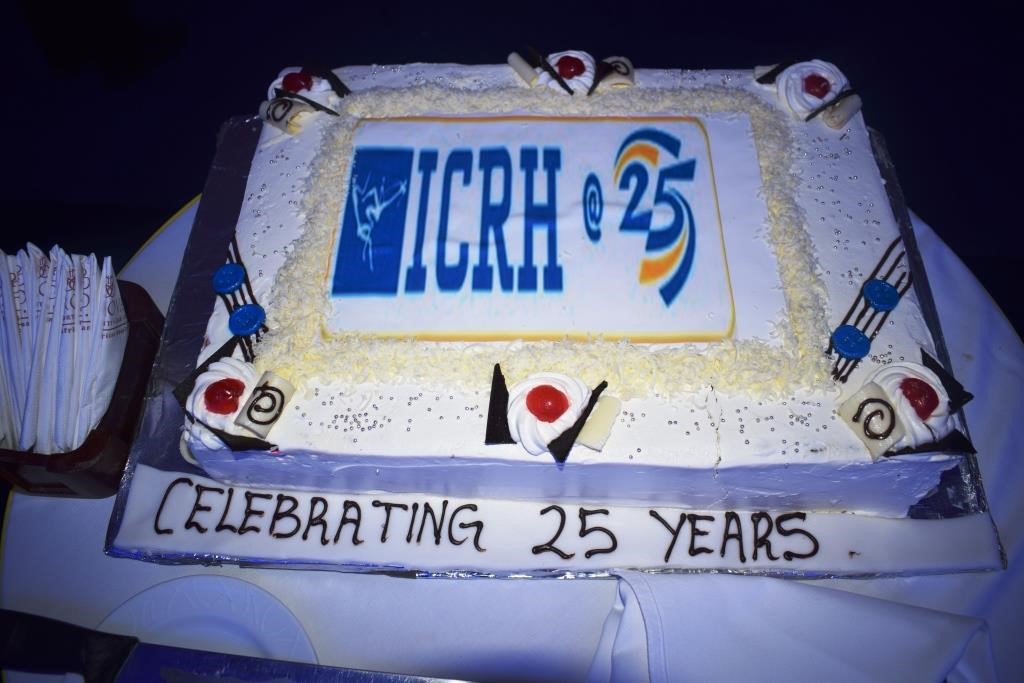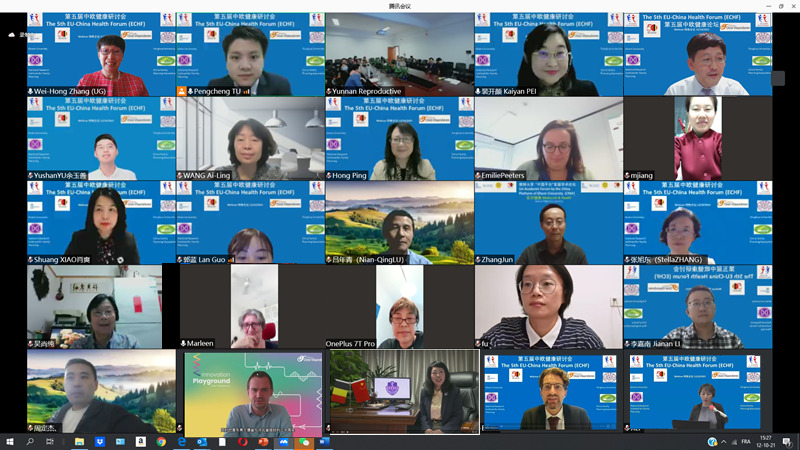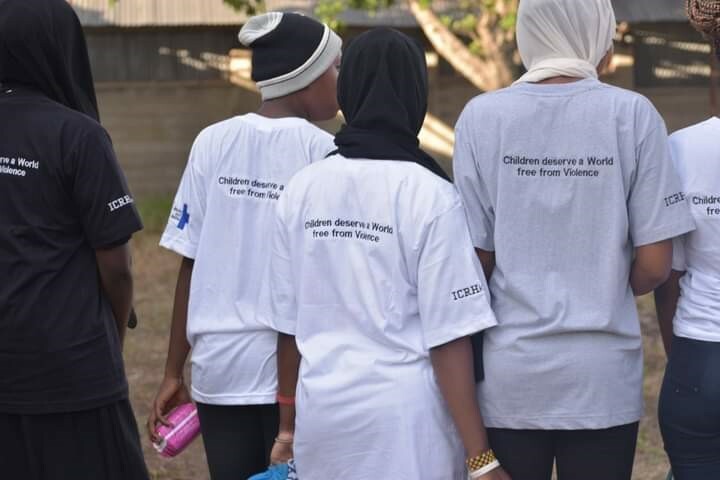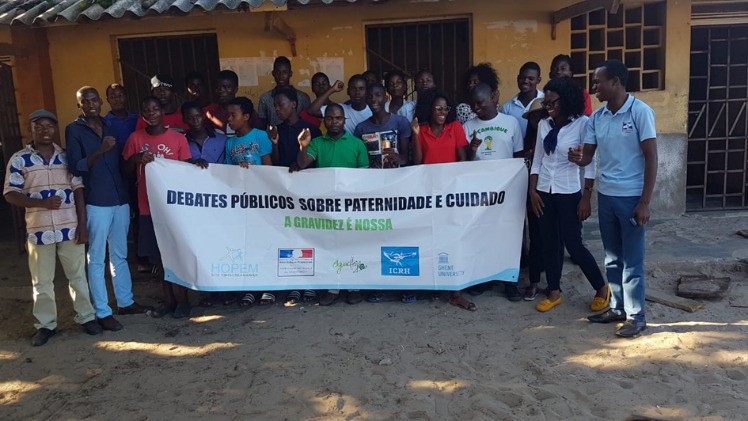The International Centre for Reproductive Health is 25 years old!

Twenty five years ago the International Centre of Reproductive Health (ICRH) was founded by Professor Marleen Temmerman, as a response to the International Conference on Population and Development in Cairo in 1994. It was established first at Ghent University, but...
ICRH+25 celebrations in Kenya
Following the conclusion of the ICPD25 Nairobi Summit, ICRH held its 25 years celebrations in Mombasa, Kenya on the 15th November 2019 at the Sarova White Sands Hotel followed by field visits to ICRHK sites on 16th November 2019. The International Centre for Reproductive Health (ICRH) was established in 1994 by Prof Marleen Temmerman, in response to the International Conference on Population and Development (ICPD, Cairo, 1994). In Kenya, ICRH has projects in 17 counties in the areas of Sexual and Reproductive Health, including HIV/AIDS, Sexual and Gender Based Violence, Adolescent Health, Maternal and Child Health and Family planning. The ICRH@25 celebrations was a great opportunity to have all the country offices convene and review ICRH Global contribution to the local and international SRHR space over the last 25 years as well as celebrate its achievements with partners, board members and friends. ICRHK held a glamorous dinner celebration to mark the 25th anniversary celebrations. Guests were drawn from various ministries of the national and local governments, donors and partners, including from the Technical University of Mombasa, a long-time partner of ICRHK.
Words of Griffins Manguro, Country Director ICRH Kenya
ICRH+25 celebrations in Belgium
Twenty-five years… according to the United Nations this is the age when you are no longer considered youth. It is the age when you are expected to finally have completed your everlasting formal education and embark on a very promising professional career. It is also often the time where you question where you are in life and what direction you should follow. Likewise, I would like to reflect about where we are today with ICRH and I’ll do that with four letters.
I for Idealism. Exactly one hundred years ago, American president Woodrow Wilson was awarded the Nobel Peace prize for his efforts in bringing peace in the aftermath of the first World War. He was a strong advocate of international cooperation and multilateralism avant la lettre. Twenty years later, on the eve of the second WW though, his views were coined by scholars as Idealistic as opposed to what they saw as the reality of the real world characterized mainly by self-interest and limited will for collaboration.
I’m afraid this latter sounds quite current. Today, we live in world where international collaboration and multilateralism are again very often seen as out-of-touch “idealism”. In the academic world too, the sentence “What’s in it for us” is increasingly becoming the bottleneck in discussions about potential partnerships. The harshness of the scientific maxim “Publish or perish” and the continuous struggle to secure funding are for many of researchers very demotivating factors.
Despite this, I am very happy to say that we as ICRH are proud to be Idealists. We do believe that we are part of a bigger movement, a movement that can make the world better… here in Belgium, in Europe and all over the world. I would even dare to say we are sometimes too idealistic to the point of becoming self-effacing. Indeed, we are often told by colleagues we should say “no thank you” more often. But then again, when you truly believe in something, you go all the way, don’t you.
C is for Commitment. In 1994, leaders from all over the world made a promise in Cairo. They promised they would take sexual and reproductive health and rights seriously and adopt national measures and legislation that would reflect this. Two weeks ago, world leaders reconvened - in Nairobi this time-, to reaffirm their willingness to do so. However, all had to admit that the progress that was made in the last 25 years was not sufficient. Women are still dying way too often as a result of pregnancy of childbirth, services remain inaccessible to many and the #MeToo movement has revealed how much work still needs to be done in combatting sexual violence. But while there is ample evidence of these existing needs, opposition to SRHR is growing fast. Two days after assuming office, Donald Trump issued a policy that has affected everyone involved in abortion; Poland is about to restrict sexuality education and ban abortion; and policy-makers in Uganda are trying to reinstate the death penalty for homosexuality. Gunta Lazdane former SRHR advisor at WHO EURO often mentions a Turkish delegate stating
This negative climate often puts the commitment of the SRHR community to the test.
Let me be clear: ICRH is and will always remain committed to its vision to contribute to sexual and reproductive health and promote it as a human right for all. I would like to mention in particular our colleagues for ICRH-Kenya and ICRH-Mozambique who had to face major dilemmas in choosing between American money for projects and renouncing to work related to abortion on the one hand, or accept the terms of the Trump administration in exchange for a lot of dollars. I’m so proud they declined the dollars, even though this resulted in huge financial insecurity. I think this merits some applause.
R stands for Relationships. More than ever before, the world has become one big village… However, at the same time we see that this globalization leads to a certain degree of fear for the unknown where different cultures and views are considered as potential threats. I sincerely hope we will manage to curb this attitude in the next decade and in the long term realize these reactions were similar to those of the farmers in the nineteenth century who thought the emergence of trains would result in their cows no longer producing milk.
But also within our own country, silos seem to remain very hard to dissolve. Very often we are insufficiently aware of what colleagues in universities, civil society, policy-making are doing and as a result miss many opportunities for strong partnerships.
ICRH has always been a true believer of strong partnerships. We have established an international network regrouping universities and civil society organization from all over the world to bridge the gap between researchers, policy-makers and civil society organizations. In a same way, we have taken the lead in a consortium of Flemish universities that have developed a master programme on Global Health. It took us 7 years, but I’m very proud to say we successfully started with our first students this September
Lastly, H for Holistic. We believe in a holistic approach to what we do. Academia is about research, education and societal outreach. You can separate one from the other and become either a top-level researcher, a highly inspirational teacher, or convincing activist. But we at ICRH want to be all of that. We believe that research is only useful if it helps society; that we need to mentor our students in global health research; and that our societal outreach should feed into our research and education. We believe that 1+1+1is much more than three and will continued investing in all three pillars equally.
Idealism, Commitment, Relationships, Holistic. This are four words but I could have used many others. I will end here however and leave it to my colleagues to present the history of ICRH and some of our achievements in many many more words, but also with images that often say much more than words. Once again thank you very much for your presence and support in the past 25 years and I hope to celebrate with you again in 2044.
Words of Olivier Degomme, Country Director ICRH Belgium




